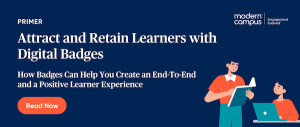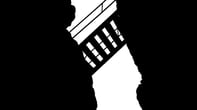Published on
Lifelong Learning For The 100-Year Life

If you knew you might live to 100, how would you change your approach to learning?
This isn’t a hypothetical question. According to a 2009 study, babies born after 2000 in the United States and several other countries have a fifty percent chance of celebrating their 100th birthdays. In this new world, described in The 100-Year Life by Lynda Gratton and Andrew Scott, most of us won’t have the luxury of sticking with what we learned in college during our teens and 20s. Most of us won’t be able to stop working in our 50s, either, as my father and grandfather did. With careers lasting longer, people will have to continually update their knowledge and learn new skills.
After reading The 100-Year Life—recommended to me by Vice Provost Rovy Branon of University of Washington Educational Outreach—I realized that the implications for higher education are profound. To accommodate longer lives, we’ll need to develop academic programs that stretch from childhood into old age. This will require creativity in how we deliver courses, with an emphasis on flexibility and personalization. It will also require creativity in how we provide credentials, from degrees to certificates to digital badges.
In other words, we must thoroughly understand this new generation of lifelong learners. We’ll have to reinvent ourselves to offer them meaning and relevance in their educational journeys, and connect with their passions over the course of their lives.
Meeting these challenges will undoubtedly test leaders in higher education. They’ll need a clear vision of the future—no easy task in this time of rapid change. And just as important, they’ll need strategies for putting a vision into practice, and inspire conventional organizations to think in unconventional ways.
Beyond Business as Usual
At University of Wisconsin–Madison Continuing Studies, our vision is a work in progress. I’m increasingly convinced that, to be learner-centered, our division must integrate non-traditional programs across a lifespan: precollege, undergraduate, graduate, and midcareer, all the way through to enrichment programs for seniors. In this way, people can access the university’s knowledge and experience as needed at different points in their lives.
In the 21st century, being learner-centered also means providing an ever-expanding menu of flexible options. As a result, we have begun offering more courses online, more opportunities for personalized learning, and more stackable credentials that help students acquire the specific skills they need in the workforce. We’re looking toward the next frontier for digital learning and searching for new ways in which online experiences can complement face-to-face courses.
Keeping in mind the 100-year life, we now measure success by our ability to meet the needs of an ever-widening range of nontraditional students. Among recent examples:
K-12 students interested in a path to higher education can register for dozens of enrichment classes in our Precollege and Youth Program. High school student Grace Greene participated in Imaging Self, a three-week residential program in which high school students build their art portfolios while earning college credit.
International students entering UW–Madison can take reading and writing classes for non-native English speakers in the International Student Summer Institute. Alfred Sunaryo had learned English in his native Indonesia but worried that his language skills would be inadequate as an incoming freshman. Before the start of fall semester, the International Student Summer Institute helped him improve his academic skills while acclimating to American life.
Low-income adults facing barriers to a college education can earn UW–Madison credit in a weekly evening course from the Odyssey Project. Josephine Lorya-Ozulamoi, a refugee from war-torn Sudan, got her start in Odyssey, which opened the door to bachelor’s and master’s degrees in social work.
Through online courses, aspiring authors from anywhere in the world can work one-on-one with instructors from the Continuing Studies Writing Program. After finding a mentor in Screenwriting: Write Your First Draft Fast, Julian Renner began making his mark in national screenwriting contests.
Mid-career professionals can keep their full-time jobs while earning additional credentials in one of our flexible Advance Your Career programs. Michele Kaiser enrolled in the online Master of Engineering: Engineering Management program, which prepared her to succeed as a product-line program manager at John Deere.
Through our Adult Career and Special Student Services unit, anyone in the community can consult with a career counselor, participate in a job support group, or take a career-planning workshop. In his mid-30s, Kirk Rappe was unhappy with his career choice of historical preservation, so he met with one of our career counselors and determined that urban and regional planning was more up his alley. He pursued a master’s degree in the field and found his dream job as a Seattle city planner.
Wisconsin residents 60 and over can audit UW–Madison courses for free in our Senior Guest Auditor Program. Jim and Eunice Hecker, both 90, have taken classes every semester in geography, history, and anthropology. “I want young students to see that learning goes on forever,” Eunice says.
Paving the way for such programs means thinking beyond business-as-usual. To revise the old saying: “If it ain’t broke, consider breaking it.”
In the sometimes-cautious environment of higher education, of course, breaking things is a tricky proposition—and that’s where a new kind of leadership comes into play.
The Good Of The Whole
According to Simon Sinek, author of Start With Why, a brilliant vision isn’t worth much if no one buys into it.
“Great leaders are able to inspire people to act,” Sinek says. “Those who are able to inspire will create a following of people—supporters, voters, customers, workers—who act for the good of the whole not because they have to, but because they want to.”
At Continuing Studies, our inspirational touchstone is UW–Madison’s Wisconsin Idea. In this famous formulation, the university uses its resources to benefit people in Wisconsin and beyond. The Wisconsin Idea informs our Continuing Studies mission of connecting the campus to the community.
As the Dean of Continuing Studies at a transformational moment, I try to keep this mission in mind every step of the way. It shapes my vision, and it helps make that vision comprehensible to everyone on staff. The sense of mission inspires all of us to work hard, think creatively, and tackle difficult challenges in these uncertain times. To quote Sinek, it ensures that we “wake up every day with a sense of why we come to work.”
Along with inspiring others, today’s effective leaders must keep their own skills sharp. Like our students, we’ll have to continually refresh our knowledge to succeed in the modern workforce. “The ability to learn is a key criterion that differentiates successful executives from those who derail,” says Jeffrey Yip, author of Return on Experience: Learning Leadership at Work. “Ongoing on-the-job learning is an essential ingredient for long-term leadership success.”
These days, learning is a journey everyone is on. Higher education can help all of us unlock our passions and remain relevant in a changing world. With all the flexibility and personalization we can muster, we’ll do it one learner at a time, over the course of a 100-year life.
Author Perspective: Administrator




